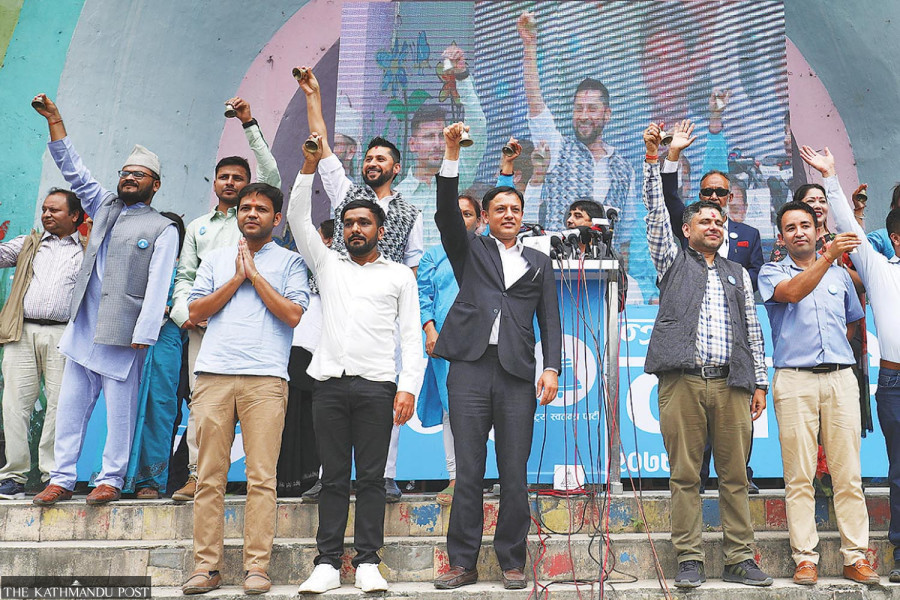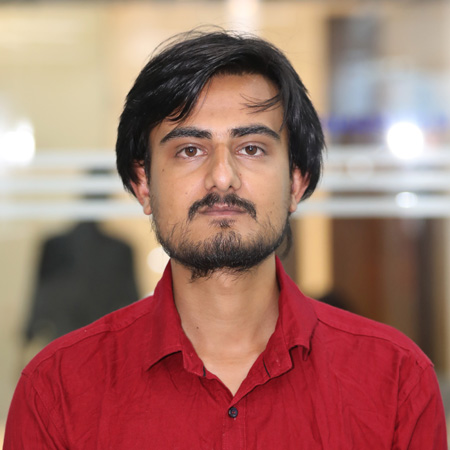Money
RSP’s things-to-do list is a bridge too far, economists say
The party has said it wants to bring revolutionary change in Nepal’s economy, but it is confused about how that is going to happen.
Pawan Pandey
Jaws dropped when upstart political party Rastriya Swatantra Party (RSP) elbowed out several established names in the general election. Claiming to be the shape of things to come, the RSP set off a youthquake that propelled it to the fourth spot in Parliament.
The RSP has an impressive things-to-do list that would make jaws drop too. Providing equal access to health and education, increasing annual tourism revenue fivefold to Rs300 billion, making Nepal a carbon-negative country, modernising transportation, ending poverty, modernising the villages and ending corruption are the major points in its manifesto which some have called a wish list.
The party has left unsaid how it's going to do all these things in the next three decades in politically fractured Nepal.
Political instability has been a recurrent feature of Nepal's Parliament since the end of the decade-long Maoist insurgency. With no party securing a majority, analysts say the volatility may continue for years.
Led by television journalist-turned-politician Rabi Lamichhane, the RSP has become the fourth largest party in the House of Representatives after the Sher Bahadur Deuba-led Nepali Congress, KP Sharma Oli-led CPN-UML and Pushpa Kamal Dahal-led CPN (Maoist Centre).
The RSP was registered less than six months ago and is filled with technocrats. The party has said it wants to bring a revolutionary change in Nepal’s economy, but it is confused about how that is going to happen.
Besides winning seven seats–four from Kathmandu, two from Chitwan and one from Lalitpur–under the first-past-the-post system, it has received more than 1.1 million votes under the proportional representation electoral system.
Economists say the instant rise of an upstart like the RSP is a reflection of public frustration over constant bungling by the established parties.
The RSP's Sobita Gautam, a lawyer by profession, won from Kathmandu-2 in a feat the traditional parties found incredible.
“The party members are yet to meet to discuss a future strategy. There is a lot of work to be done. There are many responsibilities on my shoulders,” Gautam told the Post.
Party members have different views regarding socialism and capitalism, but they all believe that the mix of socialism and capitalism which the old parties pursued has fuelled corruption and disparity in society.
“We will construct and define the ideologies that are suitable to our needs in the coming days,” said Gautam.
Rashmee Rajkarnikar, assistant professor of economics at Tribhuvan University, sees the RSP’s promises as a bridge too far, like those of every other party.
Talking is easy, but walking the talk is hard, say economists.
“For a long time, efforts have been made to end poverty,” said Rajkarnikar. “But in a politically fractured and unstable Nepal, it’s not possible to bring it down to zero. That’s a totally lofty dream.”
Several members of the new party have already started claiming ministerial berths.
Sumana Shrestha, an MBA from the Massachusetts Institute of Technology (MIT) in the United States, was part of the team that formulated the party's economic agenda in the manifesto.
Shrestha said the commitment paper was prepared after consultations with economists.
“We believe funding is not a big issue in Nepal. The challenge is in channelling it, and the country’s poor capital expenditure track record has proven it.”
Shrestha is a central committee member of the party, and is in the number two slot in the its proportional representation list.
“Yes, we aim to achieve the economic targets set by our party. We aim to alleviate poverty, we aim to keep a tab on corruption, we aim to assist digital nomads and increase foreign direct investment (FDI) through procedural improvements in the bureaucracy,” said Shrestha.
She says tourism holds great potential. “We need to improve the infrastructure to bring tourists. As Nepal has been kept on the air safety list for nearly a decade by the European Commission, there is an urgent need to improve safety," said Shrestha. “That’s high on our economic agenda.”
Nepal's FDI inflow is the lowest in the region at 0.5 percent of GDP, and this can be increased by easing approval procedures to generate foreign currency inflows and stimulate growth, Shrestha said, and the party would work to address procedural inefficiency.
The RSP in its commitment paper has labelled the Millennium Challenge Corporation Nepal Compact, which Parliament ratified in February, a “historical blunder”.
Signed in September 2017, the MCC Compact, which will fund electricity transmission line and road improvement projects, had become a hugely divisive issue in Nepal.
“Our geopolitical position does not allow us to be hostile to our neighbours,” Shrestha said. “We are not against foreign grants but against the lack of transparency, lack of public consultation and divisiveness the MCC has brought in the Nepali public.”
Agriculture has been one of the least productive sectors, according to Shrestha. “That needs a complete overhaul.” The RSP aims to increase farm labour productivity from $800 per worker.
“We aim to invest in modern farm technology, which is a key to increasing productivity,” said Shrestha. “We aim to convert the subsistence-based farming system to commercial farming.”
The party has mentioned doubling farmer incomes in the next five years in its manifesto. It has also targeted establishing factories to produce 500,000 tonnes of fertiliser annually, as recurrent scarcities have been troubling Nepali farmers for decades.
“The goals are ambitious. To realise them, the first requirement is the right leadership,” said Mukul Dhakal, spokesperson for the RSP. “We have a clear vision. We can deliver the best by strengthening the existing system.”
Dhakal, who holds a master's degree in healthcare management from Kathmandu Medical College, said he was a member of the team that formulated the party's health policies.
Annually, hundreds of people become victims of natural disasters. The RSP says it believes that a proper resettlement plan is needed to stop people from getting killed in such catastrophes.
The party believes that the proposed mega international airport project in Nijgadh, its connectivity to Kathmandu through the Tarai-Kathmandu expressway, and the mid-hill highway are key projects for Nepal’s prosperity. All these plans have been bogged down in controversies.
“There is still a need for serious consultations to address the environmental impacts of the Nijgadh airport project,” said Dhakal.
Economists see the new party through a different lens.
“The Rastriya Swatantra Party emerged as a result of the failure of the old leaders to deliver the goods,” said Jagadish Chandra Pokharel, economist and former vice-chair of the National Planning Commission that frames the country’s policies.
“This was bound to happen. In the past, after the advent of democracy in 1991, various civil society organisations emerged and became powerful, and they influenced the government and the private sector. But we don’t see them anymore,” he said.
“These organisations were co-opted by the political parties, and there remained a vacuum,” said Pokharel. “The RSP has grabbed this space.”
Dhakal admits that people are fed up with the old parties. “We know, we have been chosen as an alternative.”
Pokharel says the biggest challenge for the RSP is being institutionalised. “Whether it will function in its current form or be co-opted by other forces, we will know in the coming days,” he said.
Though several leaders of the RSP seem to have different stands regarding the party’s ideology, central committee member Shrestha argues that each class and sector in society has its own identity and issues which a single political ideology cannot address.
The party is centre-right, according to its president Rabi Lamichhane. It is centre-left, according to Shishir Khanal, RSP leader who was elected from Kathmandu-6.
Party spokesperson Dhakal says they are a socialism-oriented force which stands somewhere between socialism and capitalism. “Our party’s ideology can be called socio-neo-capitalism,” he said.
Political commentator Hari Roka says the new party is confused about its political ideology.
“I guarantee that socio-neo-capitalism does not exist. I have heard this term for the first time. They might be talking about a welfare state concept with a mixed economy, which is also called Keynesianism. But they are confused,” said Roka.
The story has been updated with Sumana Shrestha’s quote regarding the MCC.




 10.12°C Kathmandu
10.12°C Kathmandu













